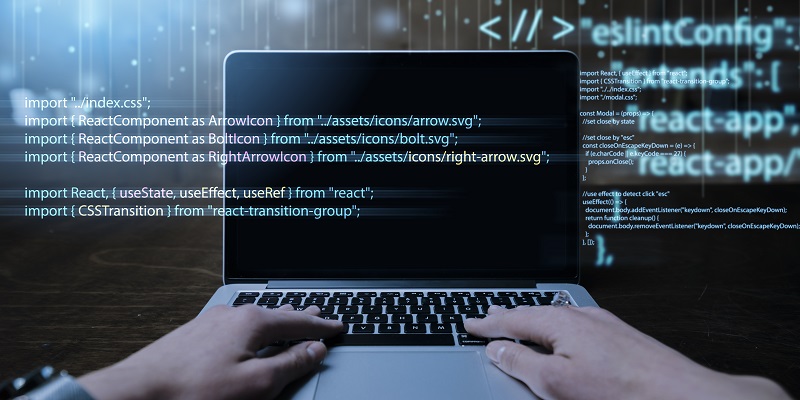The world of software development is undergoing a transformation, thanks to the fusion of generative AI and no-code/low-code platforms. These platforms are embracing the power of artificial intelligence to create dynamic experiences and reshape how users interact with software. Through this integration, users can shape software behavior without delving into technical complexities, providing unprecedented accessibility and efficiency gains. Let’s explore how the amalgamation of generative AI and no-code/low-code platforms is unlocking new possibilities in application development.
Benefits of Using Generative AI in No-Code/Low-Code Platforms
One of the key advantages of integrating generative AI with no-code/low-code platforms is the ability to create dynamic experiences. By leveraging artificial intelligence, these platforms can generate complex behaviors and responses, enabling software to adapt and evolve based on user input. This not only enhances user satisfaction but also opens up new avenues for innovation and creativity.
Shaping Software Behaviour without Technical Complexities
Traditionally, shaping software behavior has required a deep understanding of coding and technical nuances. However, with the integration of generative AI in no-code/low-code platforms, users no longer need to delve into these complexities. They can now communicate their intentions directly to the software, allowing it to learn and adapt automatically. This revolutionary approach eliminates the need for extensive coding knowledge, enabling individuals without a technical background to actively participate in application development.
The efficiency gains of this approach are remarkable and unprecedented. With generative AI, users can communicate their intentions in natural language, simplifying the process of shaping software behavior. The software learns from these interactions and uses machine learning algorithms to generate intelligent responses. This direct and intuitive communication eliminates the need for tedious configuration and implementation efforts, allowing users to achieve desired outcomes with speed and precision.
Enhanced Accessibility and Participation in Application Development
The fusion of generative AI and no-code/low-code platforms has taken accessibility in application development to a new level. Previously, software development was largely restricted to technical experts. However, with the integration of generative AI, individuals without a coding background can actively participate in the development process. This democratization of technology enables a diverse range of individuals to bring their ideas to life and contribute to the creation of innovative applications.
Privacy Concerns and Balancing Valuable Insights
While generative AI offers immense potential, privacy concerns arise when dealing with the data input into these models. It is crucial to strike a balance between deriving valuable insights from user data and safeguarding sensitive information. No-code/low-code platforms must prioritize data privacy and security, ensuring that user inputs are handled responsibly and in accordance with relevant regulations. Transparent data handling policies and robust security measures are essential to address privacy concerns effectively.
Non-Deterministic Nature
Generative AI models are inherently non-deterministic, meaning that they can generate varying outcomes even with the same input. This makes it important to carefully consider use cases where reliable results are required. For critical applications or scenarios where consistency is paramount, additional measures may be necessary to ensure the desired outcomes are achieved consistently. Understanding the limitations of generative AI models and selecting appropriate use cases enable users to leverage their power effectively.
Evolution of Conversational Interfaces
Conversational interfaces are at the core of generative AI-powered no-code/low-code platforms, allowing users to dictate software behaviors through natural language prompts. These interfaces enable a seamless and intuitive interaction with software, significantly reducing implementation and configuration overhead. As conversational interfaces evolve, they will continue to empower users, simplifying the creation and customization of applications.
The integration of generative AI with no-code/low-code platforms plays a pivotal role in democratizing technology. It breaks down barriers to entry in software development, making it accessible to a broader audience. Non-technical individuals can now actively participate in the development process, bringing their unique perspectives and ideas to the table. This democratization fosters innovation, diversity, and inclusivity in the technology industry.
Redefining Software Interaction with Natural Language Prompts
The integration of generative AI in no-code/low-code platforms redefines software interaction by eliminating the need for coding. Natural language prompts empower users to communicate their intentions directly, simplifying the execution of tasks that previously required coding expertise. This paradigm shift in software interaction facilitates faster and more efficient application development, enabling users to focus on creativity and problem-solving rather than technical implementation.
The fusion of generative AI and no-code/low-code platforms is revolutionizing software development and interaction. It enhances accessibility, brings efficiency gains, and encourages broader participation. While privacy concerns and the non-deterministic nature of generative AI should be addressed, the potential of this integration to reshape the technology landscape is undeniable. As generative AI continues to evolve, the possibilities for dynamic, user-centric software experiences will only expand, reaffirming the power of the fusion between AI and no-code/low-code platforms.

